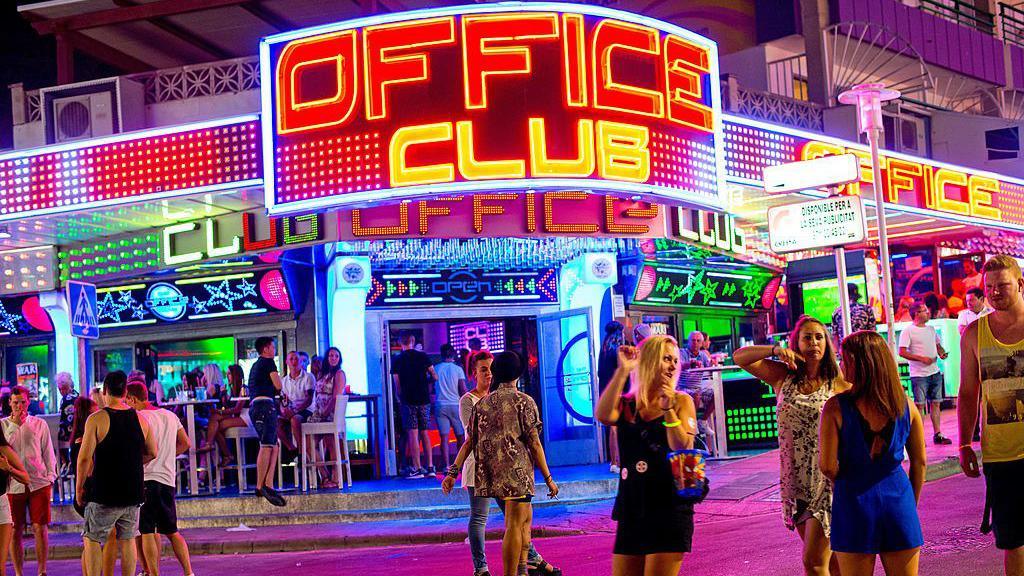The Spanish fightback against record tourism
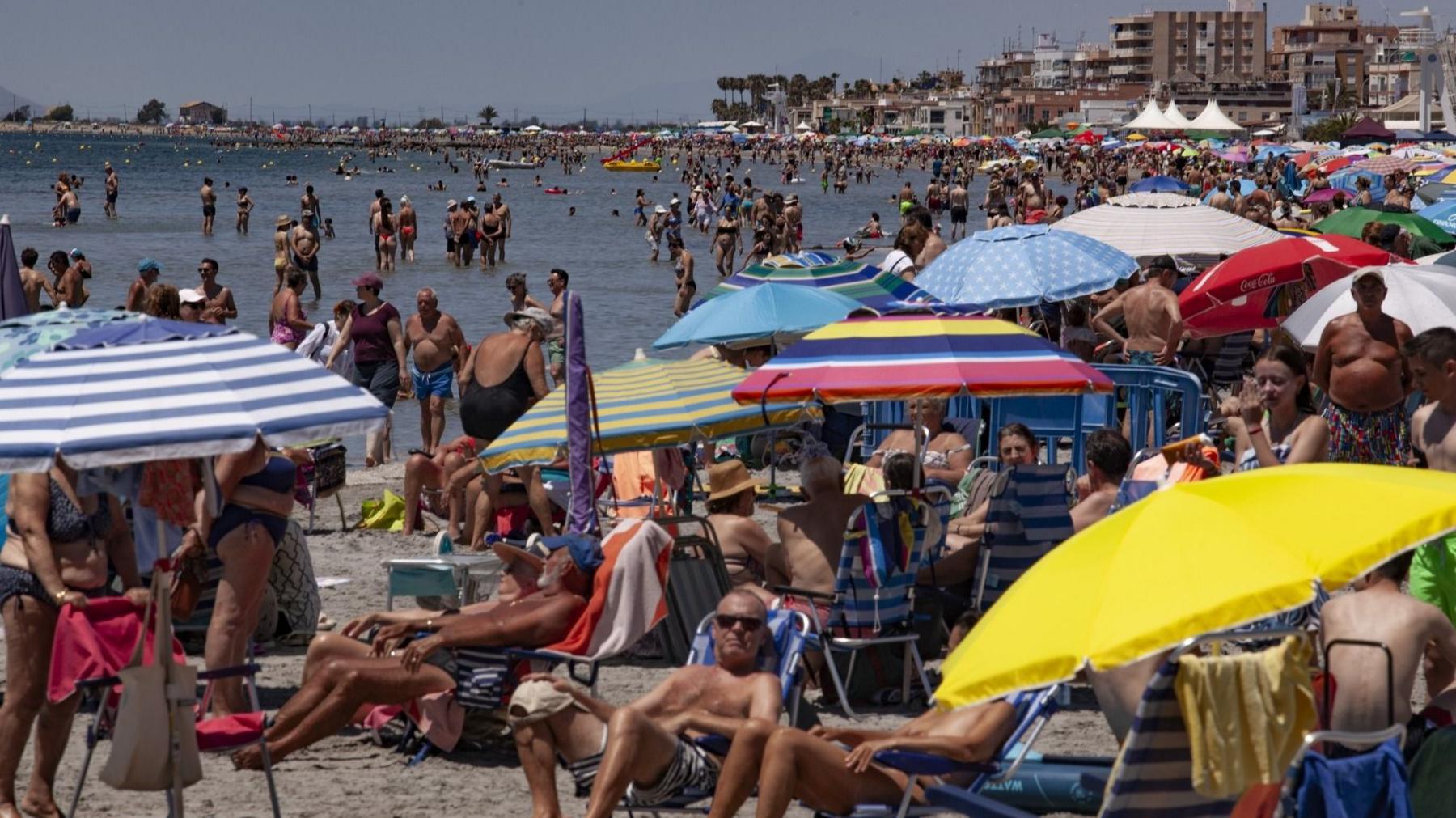
- Published
If you can elbow your way onto one of Majorca’s sunspots this summer, you will witness two unstoppable forces.
The first, as old as time, the waves of the Balearic Sea, methodically erasing the day’s lovingly crafted sandcastles.
The second, a more modern phenomenon, the tsunami of tourism threatening to consume all in its path.
Every inch of beach is taken. Finding a parking space is like striking gold.
If you leave your sunbed for too long, your possessions are unceremoniously turfed to make space for the long queue of would-be usurpers.
All these are the signs of a bonanza that’s seen and heard across the island, not least in the incessant beeping of contactless payment machines ringing out from the teeming hotels, restaurants and bars.
A chorus of commerce powered by record numbers of visitors.
But if this is a tale of colossal wealth being showered onto a business-savvy Spanish community, Sonia Ruiz certainty has not shared any of it.
We meet the mother of one, 31, in a park a few hundred metres from the shore in the capital, Palma.
Her four-year-old son Luca negotiates the various playground slides with no apparent concern.
But Sonia is really struggling. Her landlord has asked them to leave and she says finding a new place is impossible.
“Every day I’m looking and every day the rent is higher,” she says.
“I even stop people in the street and ask if they have something because the day is approaching when I will have to leave the apartment, and I just see me and my son homeless because there is absolutely nothing.”
Sonia and her partner are separated but have been forced to live together because individually they cannot afford the cost of rent, despite taking home €2,400 a month between them.
“They ask you for deposits of several months. Some have even told me that they don't want children, they don't want animals. And so many people are looking.”

Like thousands of Majorcans, Sonia is protesting this weekend against the surge in tourism that is being blamed for plummeting living standards among the local population.
Activists say spiralling housing costs are being driven by a huge number of houses and apartments being bought by foreigners, or at least rented out to them for large chunks of the summer.
“It’s impossible to sustain this sort of model," 25-year-old Pere Joan Femenia explains from outside the cathedral in Majorca’s capital, Palma.
He is part of a movement called "Menys Turisme, Més Vida", or "Less Tourism, More Life".
He says not only are unprecedented numbers of visitors pricing locals out of the housing market, they are also using up public spaces, public services and natural resources.
Pere started his activism five years ago as part of Greta Thunberg’s climate movement, but his focus has shifted to the cost of living for his fellow islanders.
“Businesses are changing from ones selling traditional products to multi-nationals selling ice cream and we are losing our identity. We want to preserve our culture," he says.
Pere points over to the port, far beyond the rows of street vendors and swelling crowds filling the square, explaining that some cruises disgorge as many as 12,000 visitors every day on to the island.
He says it is a myth that Majorca needs ever-expanding tourism to survive, and that the reality is many locals are preparing to leave for good because they can no longer afford it here.
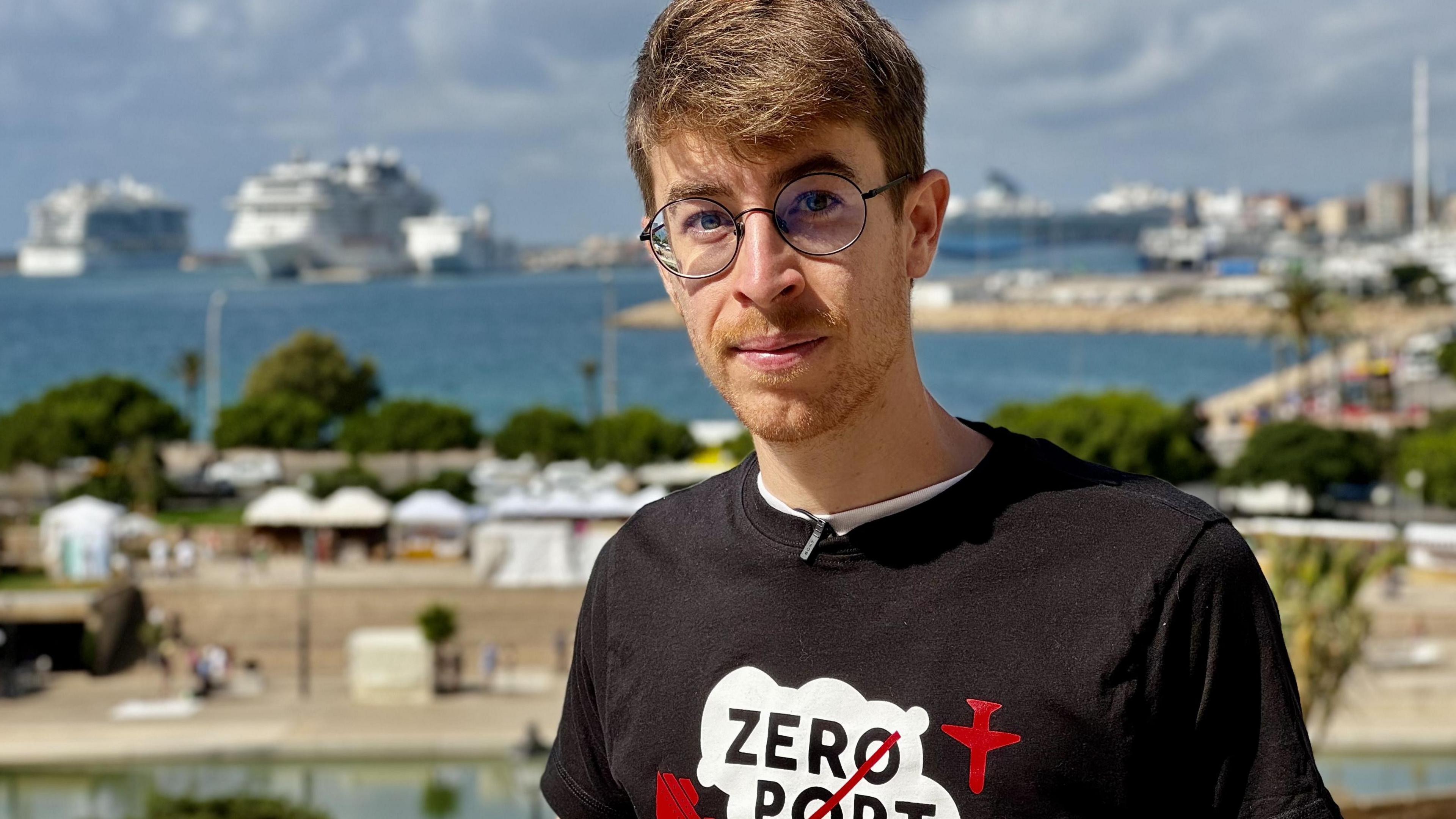
Pere argues that putting limits on flights arriving and cruises docking will immediately ease the pressure on the island.
It is a demand that will form part of the slogans and banners carried around Palma during this weekend’s protest.
Spain’s National Institute of statistics says last year 14.4 million foreign tourists visited the Balearic Islands, of which Majorca is by far the biggest - followed by Menorca then Ibiza.
The institute says the number of international visitors to the archipelago increased by 9.1% compared with 2022 while their spending went up even more - 16.4%.
When Spanish visitors are taken into account too, activists claim this year could see 20 million visitors to the Balearics.
As Spain’s tourist hotspots have developed over the decades, the debate over whether the millions of visitors bring more problems than benefits has intensified.
Thousands rally against Canary Islands mass tourism
- Published20 April 2024
Global tourism is booming. These people would rather it wasn’t
- Published31 May 2024
Protesters in hunger strike over Spain mass tourism
- Published12 April 2024
This year it feels like something has changed. The anger among many locals is reaching a new level - notably demonstrated in Barcelona recently when visitors were drenched with water pistols.
There have been demonstrations elsewhere on the mainland, in Malaga, as well as in the Canary Islands. Spain’s tourist magnets are now looking to repel a seemingly inexorable deluge.
Some British newspapers compiled lists of “hostile holiday hotspots” to avoid in the summer of 2024.
On a packed beach in Magaluf, the long-time destination of choice for millions of British holidaymakers, the Green family from Rotherham are paddling happily.
This is dad Adam’s first trip abroad, although calling it a “holiday” may be a stretch as he and his wife keep tabs on their seven kids.
“It’s hectic, but we’re getting there. Apart from the heat, it’s great,” he says.

I ask whether they’ve heard about the various protests that have been taking place and if it made them think twice about coming out to Majorca.
“I saw a little bit on the news”, says Charlotte, “but I tried not to watch it because I didn’t want it to stress me out and put me off coming because we’d already booked and paid for it.”
And how about the central thrust of the local protesters’ argument - that burgeoning tourism is having a hugely negative impact?
“Don’t the tourists boost it and make the money for this place?" asks Adam.
“People travel around the world and this is it. With no tourists there’d be no jobs, no wages, no nowt. They rely on it, don’t they?”
Get in touch
Are you a protester, local resident or tourist? Please get in touch to share your views and experiences.
- Published7 July 2024
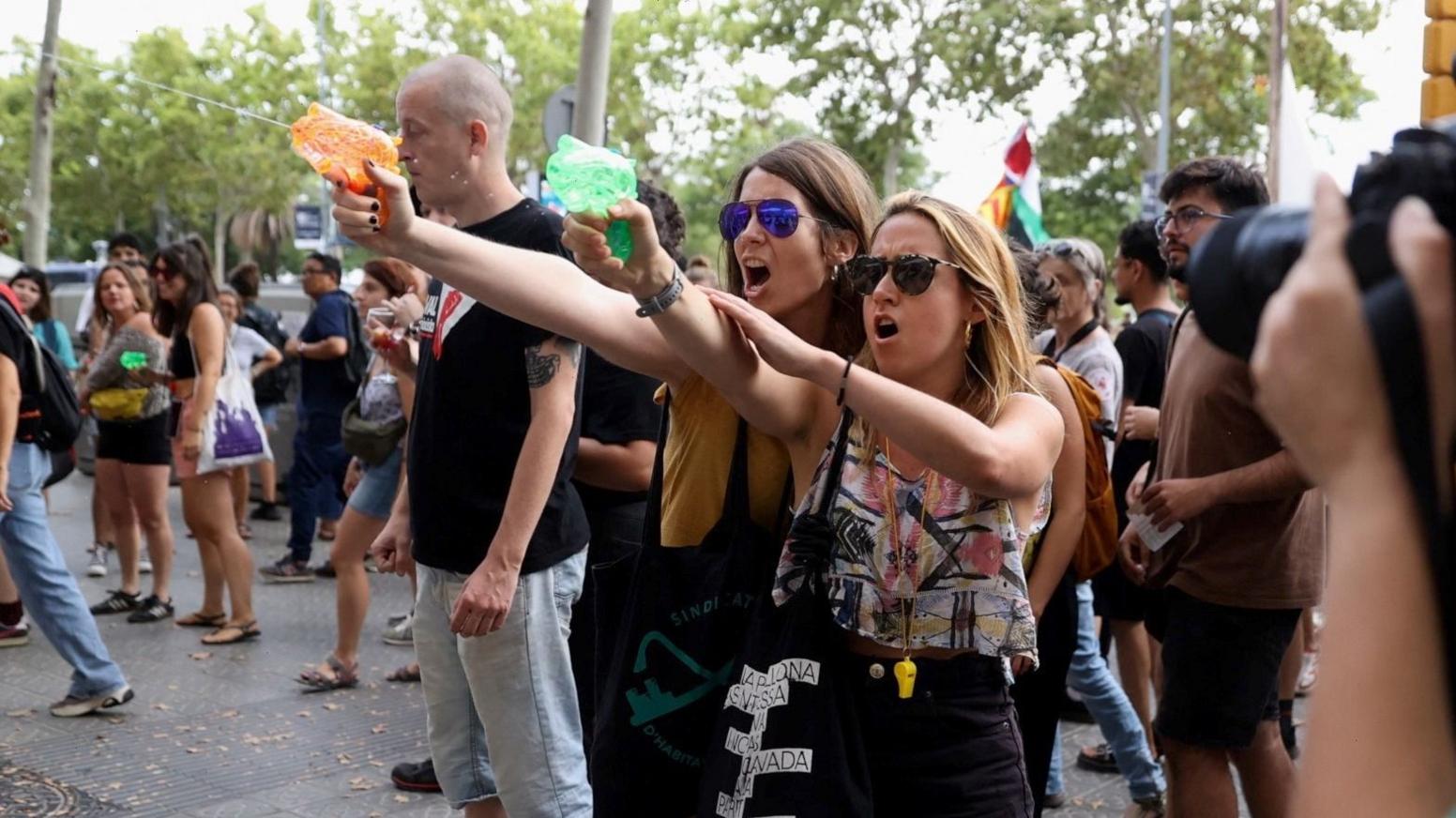
- Published21 June 2024
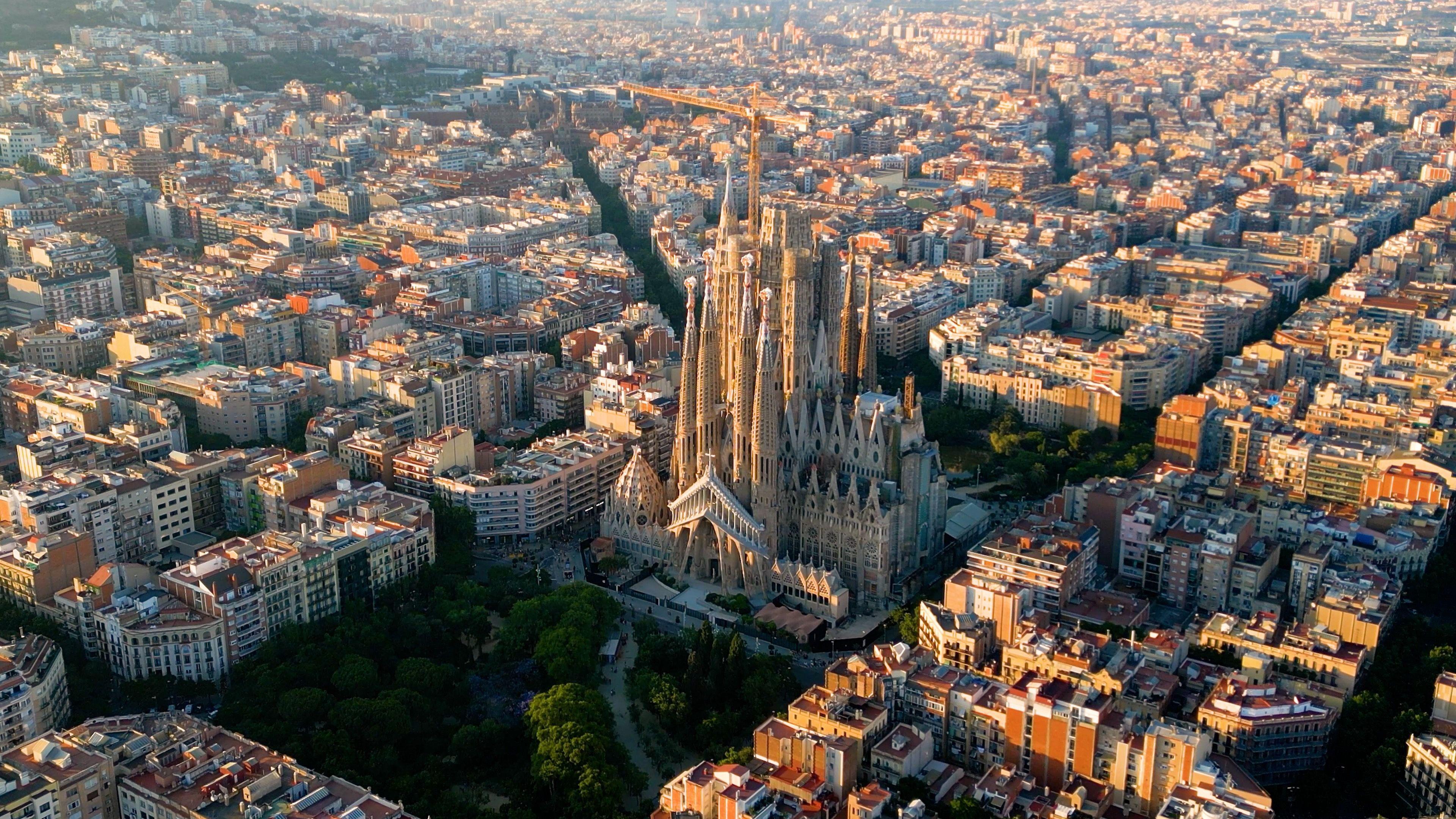
- Published10 May 2024
